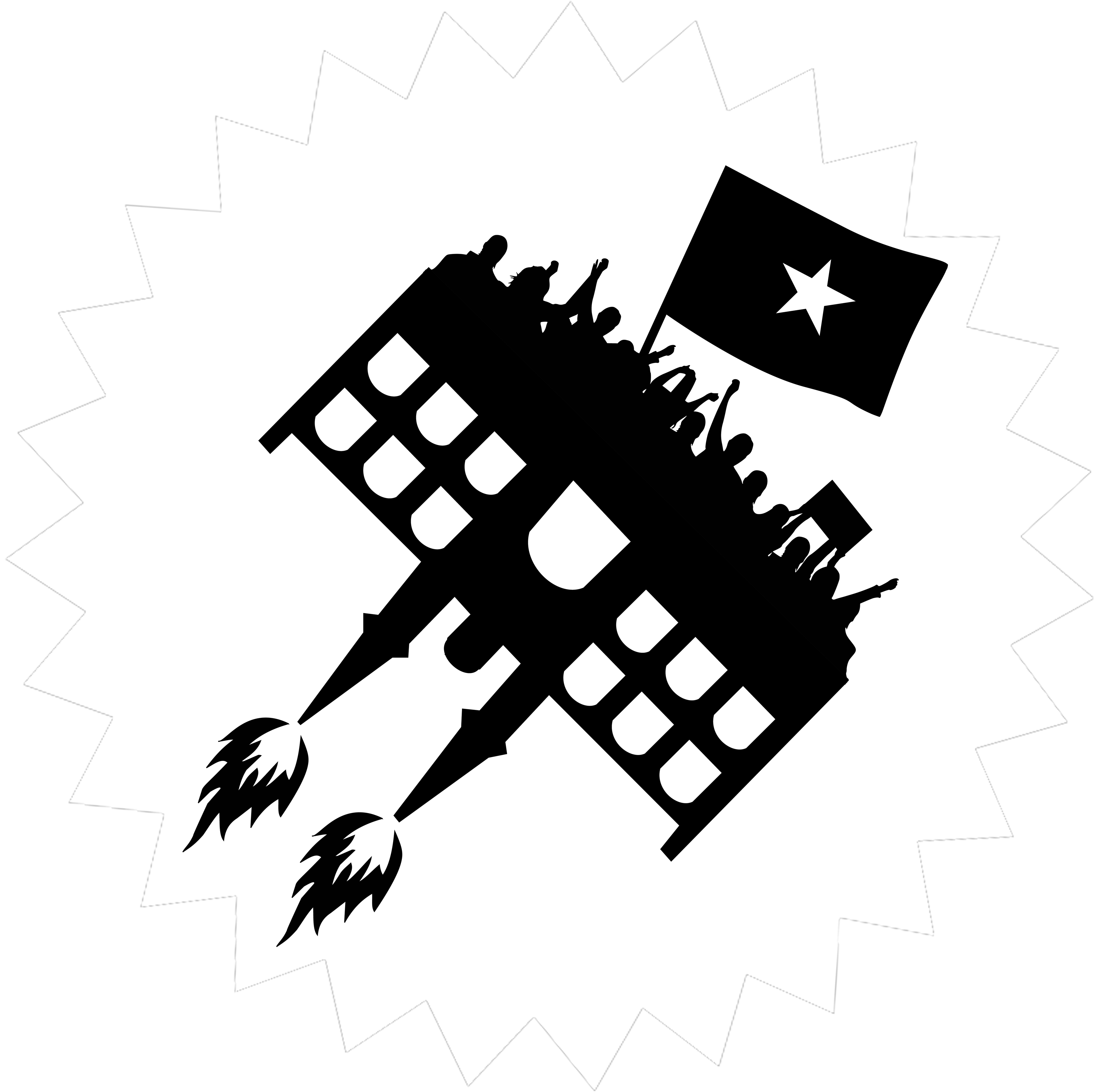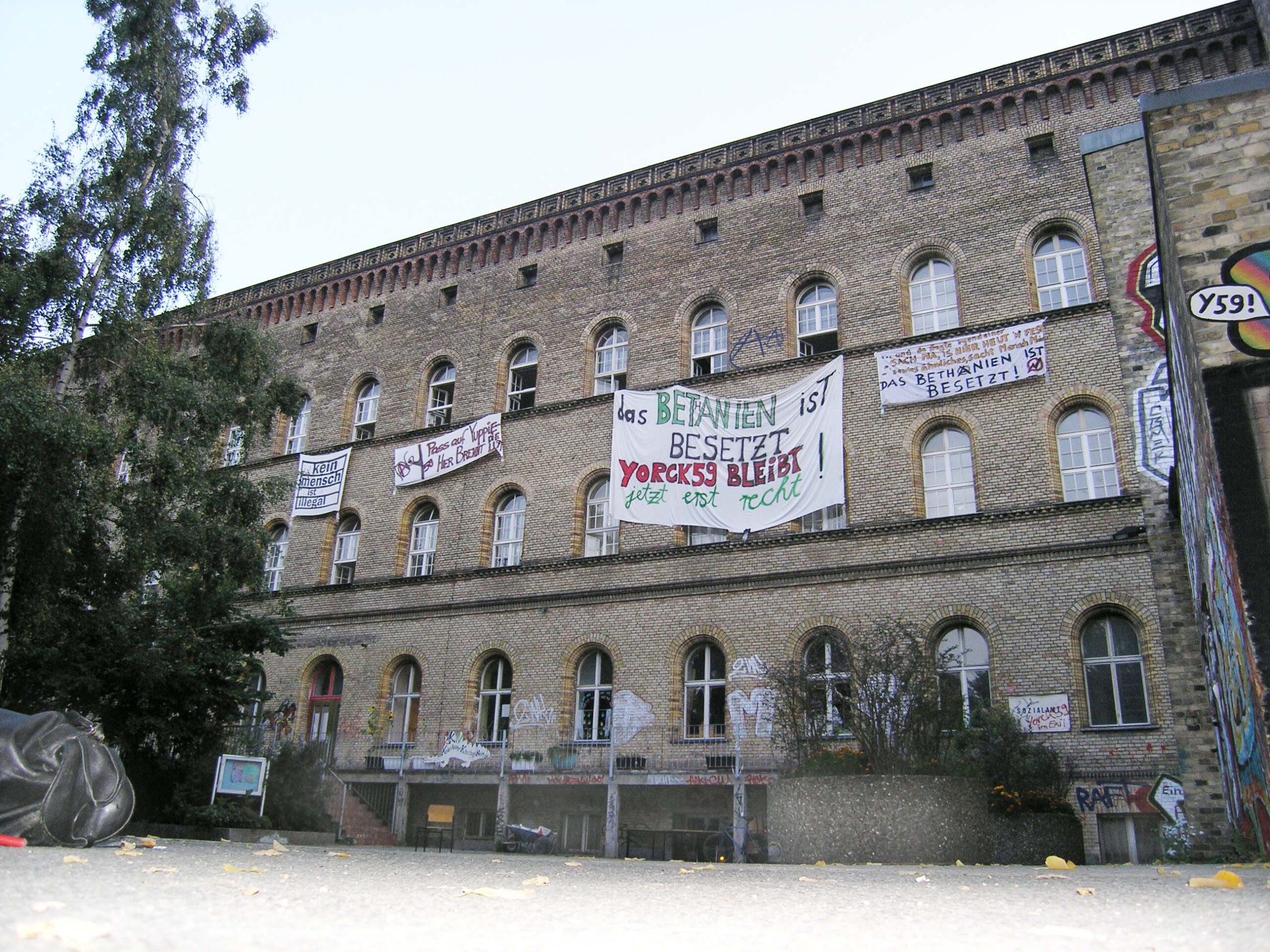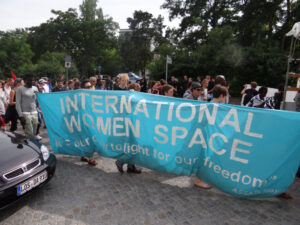Infomaterial
„Die Häuser denen, die drin wohnen !“ [DE]
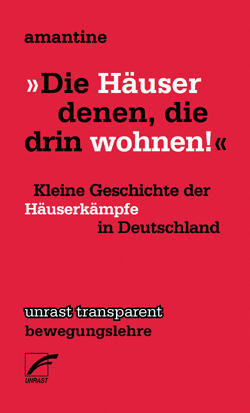
A brief history of housing struggles in Germany.With very different political goals and motivations, motives and ideas, struggles for housing, affordable rents and houses have a long history and tradition in Germany.
Germany.
„Das Private ist Politisch“ – Häuserkampf und Gender [DE]
The debates about gender, sexism/homophobia and patriarchal structures as well as the autonomous organization of women-lesbians-queer-trans-tunts in squats/legalized houses and car parks in West Germany from 1970 onwards and the questioning of fixed bipolar and heteronormative gender identities and assignments are the topics of this article.
and heteronormative gender identities and assignments are the topics of this article.
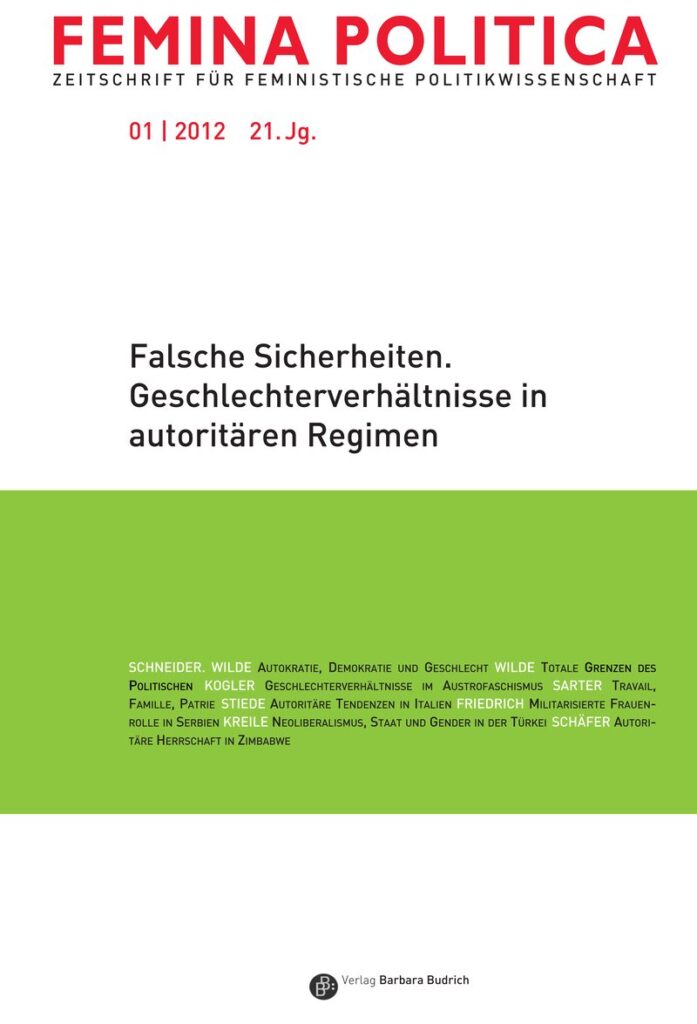
Besetzen im 21. Jahrhundert – »Die Häuser denen die drin wohnen« [DE]
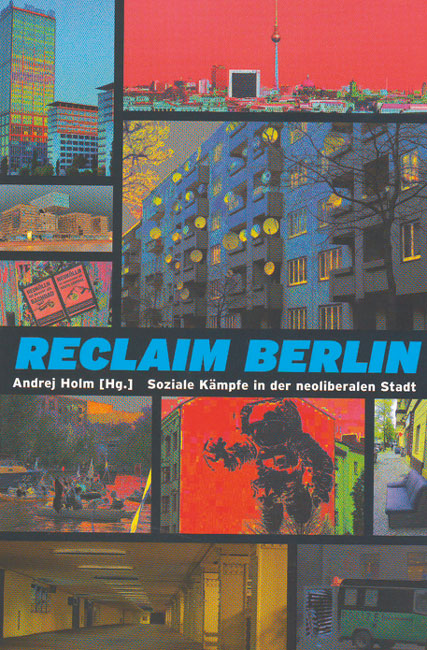
Article from “Reclaim Berlin” Social struggles in the neoliberal city
The major waves of squatting in 1980/81 in West Berlin and 1989/90 in Berlin as a whole, especially in the eastern part of the city, each with more than 120 squats, led to the legalization of a large number of those houses, as well as many evictions, and the last major wave of evictions of houses and car parks took place in the mid-1990s, under the responsibility of the then CDU interior minister and ex-army general Jörg Schönbohm. In addition to the lack of a larger and broader political movement that would have had the ability to mobilize on a massive scale, state repression in the form of the consistent application of the so-called “Berlin Line” played a major role in preventing occupations.
Kämpfende Hütten – Urbane Proteste in Berlin von 1872 bis heute [DE]
Brochure for the exhibition : kaempfendehuetkaempfendehuetten
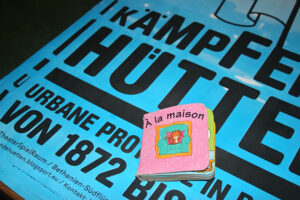
“Dieses Haus ist besetzt” [DE]
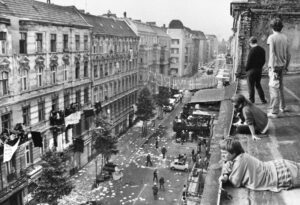
Der Text wurde in leicht geänderter Form bereits in der Oktober/November Ausgabe 05/2017 in der Zeitschrift Missy Magazine veröffentlicht.
Squatting and Diversity – Gender and Patriarchy: In Berlin, Madrid and Barcelona [EN]
published in the book: The Squatters Movement in Europe – Commons and Autonomy as Alternatives to capitalism (Squatting Europe Kollective)
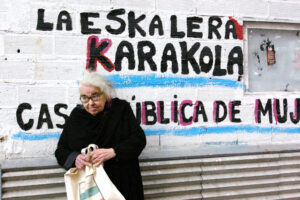
“Our struggle will continue ” Women-refugee activists of squatted Ohlauer Straße 12, International Women’s Space in Berlin (2016) [EN]
“We don’t want Just one cake, we want the whole fuckin’ bakery!” Autonomy Meets Repression and Institutionalisation [EN]
“How do we fight against property speculation and ownership, gentrification, and corporate public space with a legal social centre that has more in common with these things than not? How can we engender radicalism in our society if people’s first point of contact with non-mainstream politics is a space built on compromise, which exists only because the state says it can?
Luisa Rossini, azozomox & Galvão Debelle
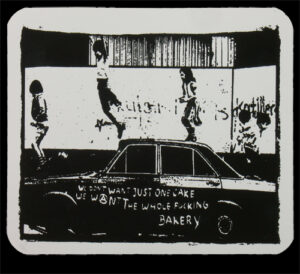
“The History and Cycles of Squatting in Berlin (1969-2016)” [EN]
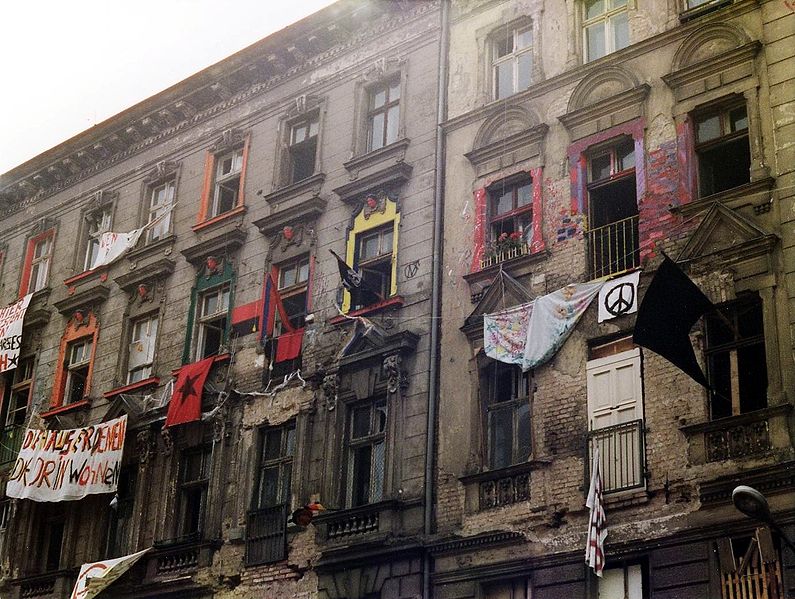
Our investigation on squatting in West and East Berlin from 1969 to 2016 reveals that approximately 650 entities—from houses, factories and villas to parks, unbuilt land, or the former death strip of the border between the two German states—have been squatted within a political framework and with political intentions. Squatting is related to the general political circumstances and to the strength of the political movements.
“Ni Dios ni estado ni Patriarcado. La Lucha de okupas y del genero” [CAS]
ya publicado en: La Fundación Betiko, http://fundacionbetiko.org/portfolio/2012/ Ni-Dios-ni-Estado-ni-patriarca-.-La-lucha-de-okupas-y-el-género-petit
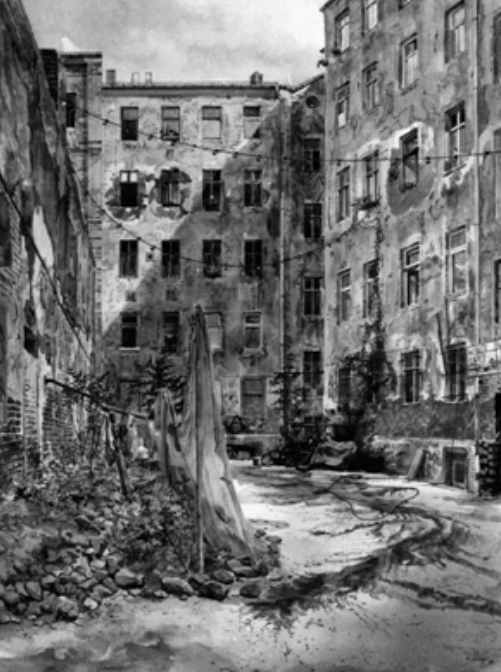
The Untold Struggles of Migrant Womxn Squatters in Berlin-Kreuzberg – The Occupations of Kottbusser Straße 8 and Forster Straße 16/17 [EN]
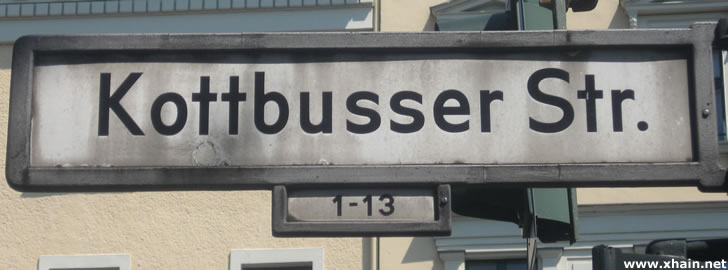
In West Berlin, Kreuzberg was the central district of the squatting movement in the early 1980s; almost half of the squatted houses were located there. At the same time, it was also a migrant neighbourhood. The majority of West Berlin’s migrant population came from Turkey and Kurdistan and lived in Kreuzberg. Although the miserable housing situation of migrants has been narrated and analyzed through diverse perspectives, the role of migrants taking action on, initiating, participating in, and transforming the housing/urban struggles, specifically in the
squatting movement, remains mostly untold. With this chapter, we aim to discuss two squatting experiences of migrant womxn from Turkey and Kurdistan in the early 1980s in Berlin-Kreuzberg.
QUESTIONS D’HIER ET DE DEMAIN: Squats, mode d?emploi a été publiée dans le Forum Civique Européen [FR]
Nous continuons notre série d?articles sur les squats, cette fois-ci avec un historique des squats en Allemagne: les occu-pations à partir de 1968 à Berlin-Ouest, Berlin-Est et dans le Berlin unifié. Cette partie est consacrée à Berlin-Est puis à Berlin réunifié.
Au début des années 1970, l?occupation de milliers d?appartements et de quelques maisons individuelles a gagné Berlin-Est.

